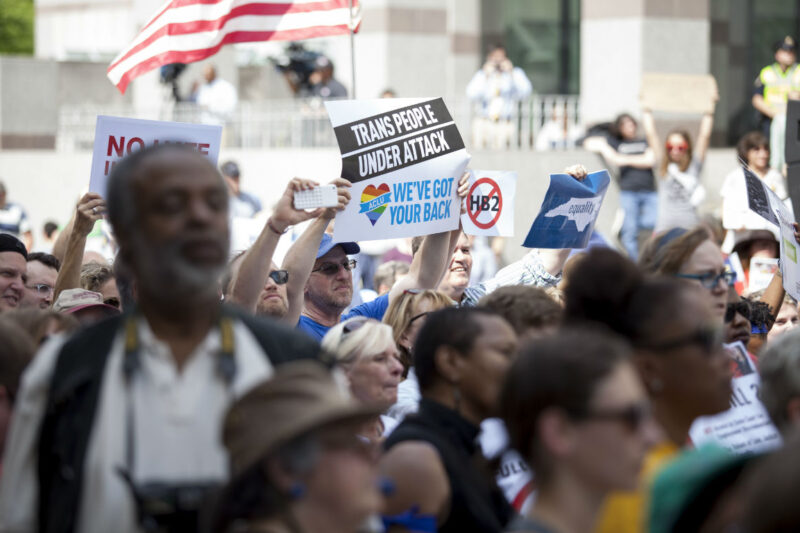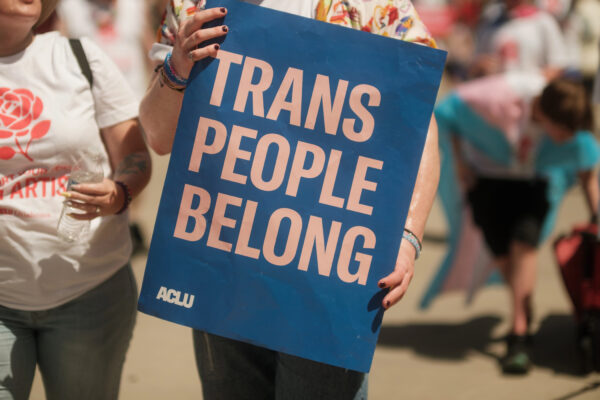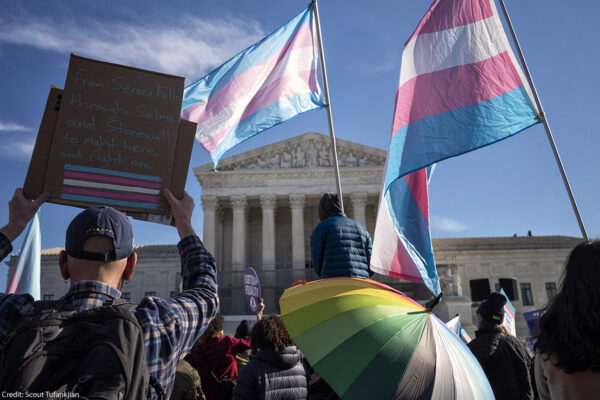After Losing in Court, Michigan Funeral Home Now Claims Religion Justifies Firing Transgender Woman


For decades transgender people have been fired or turned away from jobs just because of who they are. Courts and federal agencies are finally starting to recognize this for what it is — illegal sex discrimination — and they’re holding employers accountable.
But now, a Michigan funeral home is trying to turn back the clock by claiming that this country’s religious freedom protections give it a license to discriminate against transgender employees. As we explain in our recently filed friend-of-the-court brief, religious freedom doesn’t give employers a free pass to evade our civil rights laws, whether those laws are being used to remedy discrimination against women, people of color, or transgender individuals.
Aimee Stephens had worked for nearly six years as a funeral director at R.G. and G.R. Harris Funeral Homes when she informed the funeral home’s owner that she is a transgender woman and planned to start dressing in appropriate business attire for a woman. She asked for understanding and support. The owner fired her two weeks later, explaining that it would be "unacceptable" for her to dress and present as the woman she is. After learning what happened to Aimee, the Equal Employment Opportunity Commission sued the funeral home for sex discrimination.
At first, the funeral home tried to argue that transgender people aren’t protected under federal workplace antidiscrimination laws. They raised this argument because we don’t have a federal law, nor in most states do we have a state law, that explicitly prohibits employment discrimination based on a person’s gender identity or transgender status. As a result, people in 30 states can be fired or denied a job just because they are transgender, without recourse to a law that explicitly prohibits such discrimination.
Fortunately, a number of federal courts and the EEOC have recognized that the federal law against sex discrimination in employment protects transgender people. In Aimee’s case, the court held that her employer can’t discriminate against her for dressing consistently with her gender identity.
After losing its motion to dismiss the case, the funeral home raised religion defenses under the First Amendment’s Free Exercise Clause and the Religious Freedom Restoration Act. The funeral home isn’t affiliated with any church; its articles of incorporation don’t mention any religious purpose; and it employs and offers services to people of all faiths and no faith. In fact, the EEOC observed that the funeral home “gave no indication that its religious beliefs were being violated until litigation had been underway for nearly eight and a half months.” Now, however, the owner claims that having to employ transgender people would impermissibly infringe his business’s religious exercise.
As we pointed out in our brief, these arguments aren’t new. In the 1960s, business owners objected to civil rights laws integrating restaurants and other public accommodations because they sincerely believed that God wanted the races to be separate. Later, religiously affiliated universities prohibited students from engaging in interracial dating, because their religious beliefs opposed interracial relationships. And employers insisted that they should be allowed to pay women less, because they had a sincere religious belief that men should be the primary breadwinners. In those cases, we recognized that requiring integration and equal pay were not attacks on religious freedom, but necessary measures to ensure a fair society for everyone.
The same is true here. Our country has a long and painful history of sex discrimination directed at transgender people. According to one study of anti-trans violence, between 25 and 50 percent of transgender people have been victims of physical attacks because of their transgender status. And, in a recent national survey of transgender people, more than a quarter of participants reported that they had lost jobs because of their transgender status, and nearly half reported experiencing some form of workplace discrimination.
The states should be preventing this kind of discrimination, but they often encourage it instead. In the last several months, we’ve seen a whole slew of bills and ballot measures encouraging or even requiring discrimination against transgender people, such as North Carolina’s HB2. And we’ve seen other bills allowing religion to be used to discriminate against transgender people, as well as lesbian, gay, and bisexual people, such as Mississippi’s HB 1523. With several states in thrall to these hateful measures, we have to make sure that transgender people enjoy the full protection of federal antidiscrimination law. That’s why Aimee’s case is so important.
Religious freedom in America gives everyone the right to their religious beliefs, but it doesn’t give employers a license to discriminate against their employees. As courts have recognized for many years, civil rights protections are much too important to allow employers to use religion to evade them. That is especially true here, where the state laws and policies applicable to transgender people have been going from bad to worse.
We hope the court agrees.



